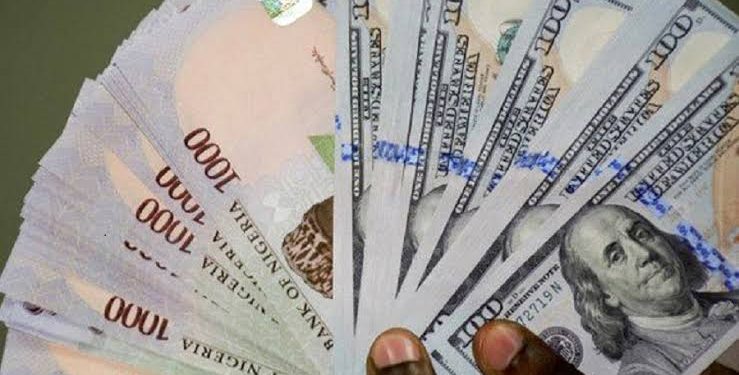The Nigerian naira weakened further against the US dollar on Thursday, April 25, closing at N1,605/$1 at the official foreign exchange market, according to data from the Central Bank of Nigeria (CBN).
This marks a marginal dip from N1,603/$1 on Wednesday and N1,606/$1 on Tuesday, reflecting sustained pressure on the local currency due to tight dollar supply and rising post-Easter demand.
In the parallel market, the naira traded at N1,610/$1, representing a slight weakening from N1,600/$1 on Wednesday, but a mild recovery from N1,615/$1 on Tuesday, as tracked by Nairametrics via market sources.
The N5 spread between official and black market rates underscores ongoing inefficiencies in the forex market, despite CBN interventions aimed at improving liquidity and transparency.
Analysts warn that the naira may remain under pressure in the short term due to:
Low oil output
Reduced foreign investment inflows
High dollar demand from importers and businesses settling debts after the holidays
Speaking at a forum this week at Nasdaq MarketSite in New York, CBN Governor Olayemi Cardoso reassured global investors that ongoing reforms are gradually restoring macroeconomic stability and investor confidence.
He highlighted key measures the bank has taken in the past 18 months, including:
Raising the Monetary Policy Rate (MPR) by 875 basis points to 27.5%
Injecting hundreds of millions of dollars into the FX market
Introducing the FX Code and Electronic Foreign Exchange Matching Systems (EFEMS)
Cardoso emphasized the CBN’s commitment to orthodox monetary policy, transparency, and consistency, positioning Nigeria for long-term economic recovery.










